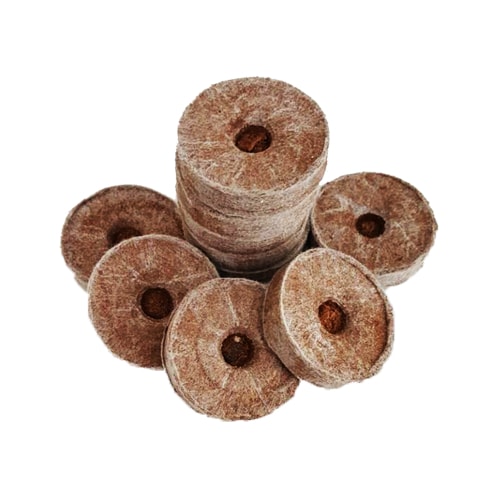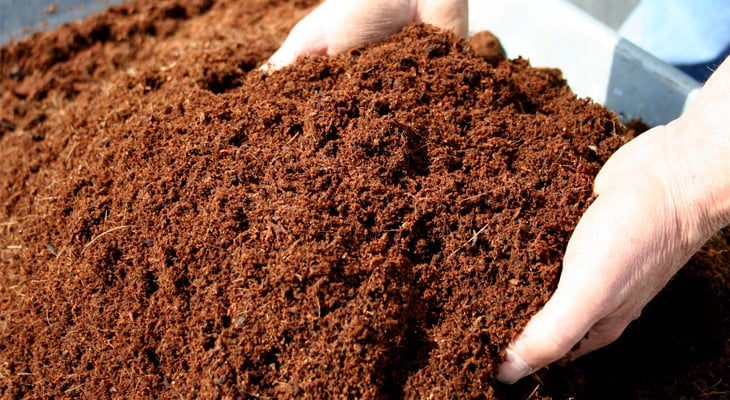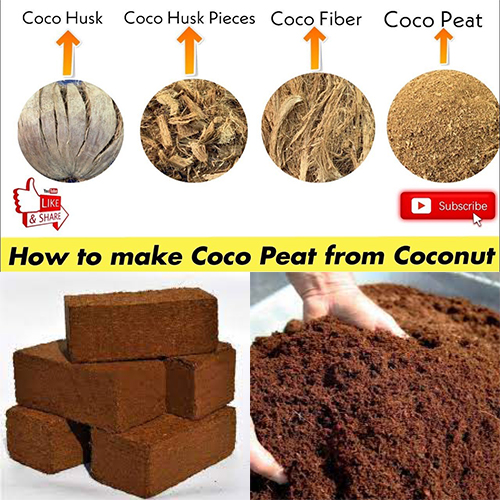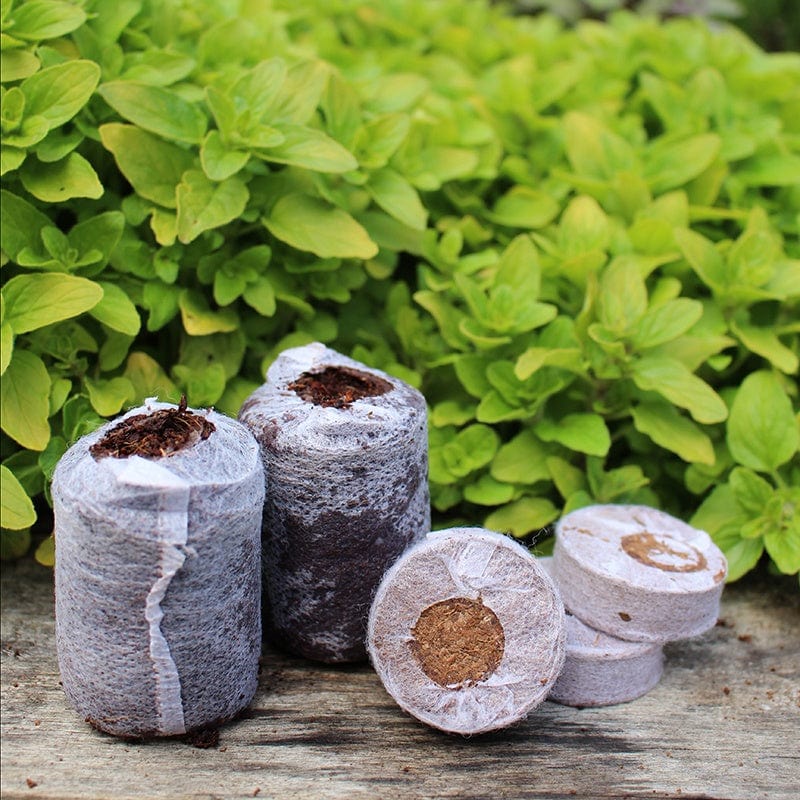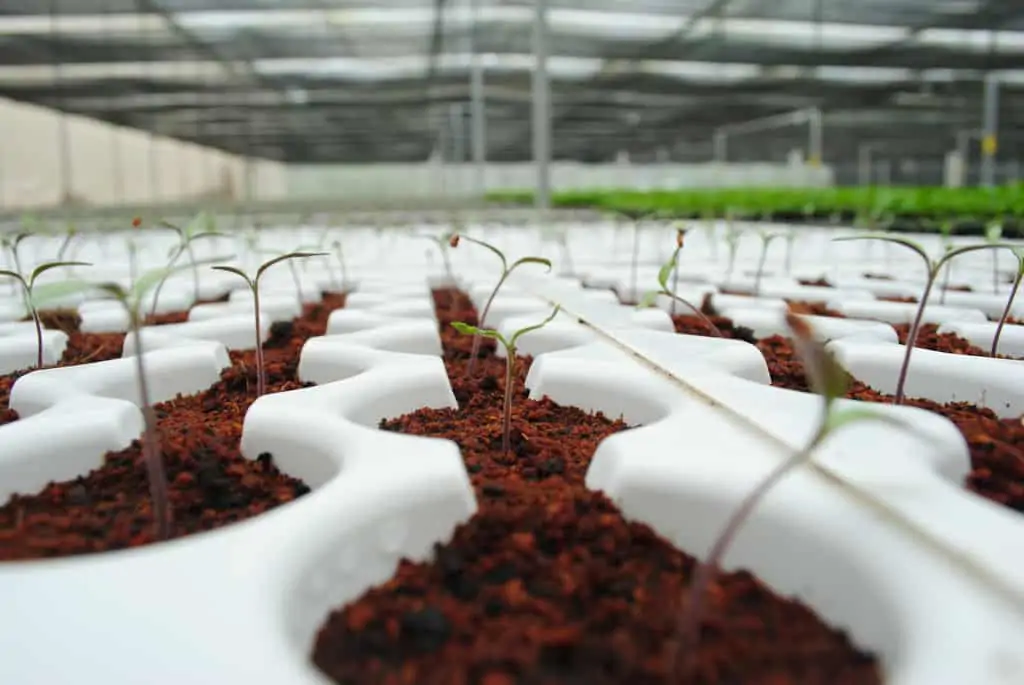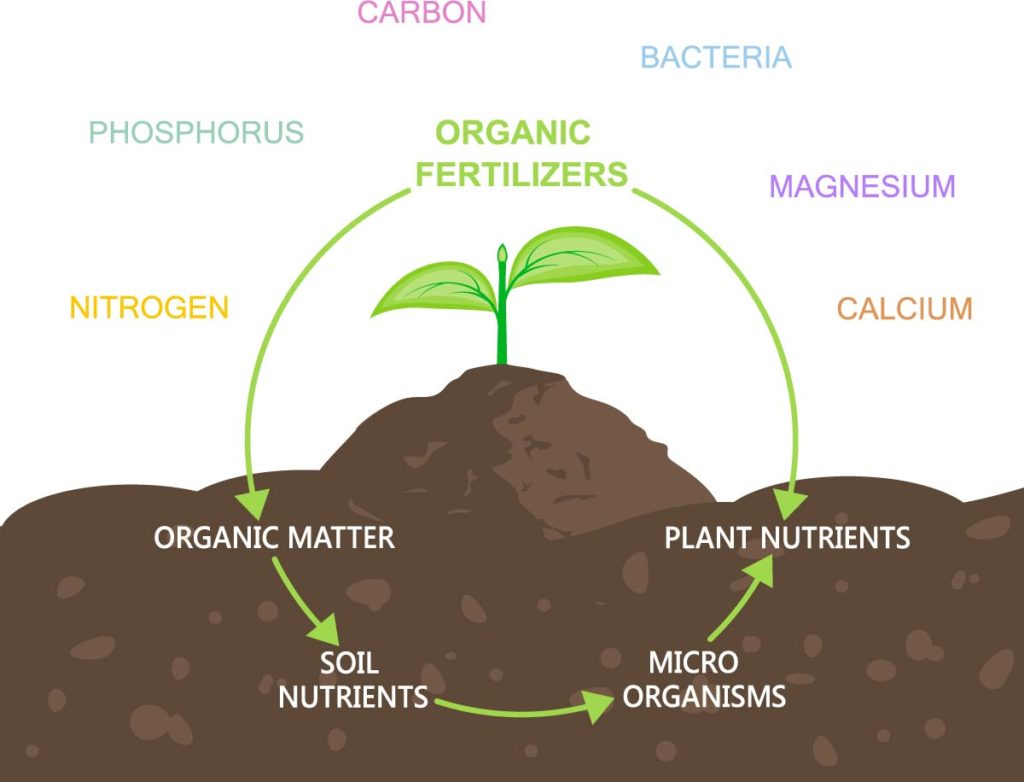WHAT IS COCO PEAT?
Coco peat or coco pith, is made from coconut husks through the shredding process. It has the form of fine dust, or there is also a type of coco peat the size of sawdust. Coco peat is very light in weight, comes in loose form or is pressed into bricks to facilitate transportation. Coconut peat was first used in the 90s and is increasingly known for its many benefits for plant growth. Above all, it is environmentally friendly, coco peat is made of 100% natural.
APPLICATIONS OF COCO PEAT
The primary application of coco peat lies in agriculture, where it is extensively utilized as a growing medium c soil amendment. Coco peat can be used as a standalone substrate or blended with other media to improve water retention and enhance aeration, creating optimal conditions for robust plant growth. Its sterile properties make it particularly suitable for seed starting and nurturing tissue culture plants. However, coco co is also used in some other fields below:
- Livestock application: Coco peat is a suitable substitute for traditional animal litter materials. It provides a comfortable and absorbent lining that helps control odors and keep animals dry.
- Industrial Applications: Coconut peat is used in various industrial applications such as insulation, biofilters and as an ingredient in the manufacture of products such as doormats and biodegradable pots, etc. These are just a few examples of the applications of coco peat. Its versatility, sustainability and environmental friendliness make it a valuable resource in many industries.
COCO PEAT IN HORTICULTURE COCONUT
Coco peat offers a lot of benefits for gardening and this is also its most popular application. In gardening, coco peat can be used as follows:
- Planting medium in the garden: Can be used as a standalone substrate or mixed with other media such as perlite, vermiculite, perlite or traditional soil.
- Soil improvement: Coco peat can be used as a soil improver to enhance the structure which is the water holding capacity and nutrient retention of various soils. It helps to break down heavy clay soils and increase the water holding capacity of sandy soils.
- Nursery: Coco peat is an excellent choice for seed germination and propagation due to its sterile composition, smooth texture, and superior aeration properties. These characteristics contribute to the promotion of robust root growth and create an ideal environment for the successful development of seedlings. As a result, coco peat is widely embraced in nurseries as a preferred medium for cultivating healthy and vibrant young plants. Hydroponic: Coco peat is widely employed as a favored growing medium in hydroponics, a soilless farming technique. Its exceptional moisture retention capability and ability to facilitate adequate aeration make it an ideal choice for cultivating plants without traditional soil. In hydroponic systems, growers supplement the necessary nutrients through nutrient solutions to ensure robust and healthy plant growth.
Composting fertilizer: Composted coco peat is a good fit for feeding worms, earthworms, and making organic fertilizer. Light-weight: Coconut peat is very easy to transport, suitable for potted plants or indoor plants.
Industrial Applications of Coco Peat Coconut peat has a wide range of applications in different fields. Some common uses of coco peat include:
- Construction material production: Coconut peat is used as insulation in the construction industry. Its structure and high lignin content help insulate heat, making it suitable for insulation panels, roofing tiles and other building materials.
- Biology: Coconut peat is an effective substrate for biological filtration systems. It can be used in wastewater treatment plants and air purification systems to filter and remove pollutants, odors and harmful substances.
- Soil erosion control: Coir peat is processed into geotextiles, mats and nets for erosion control applications. Strong and durable fibers stabilize soil and prevent erosion on slopes, riverbanks and construction sites.
- Appliances production: Coco peat is used in the production of fiberboard and panels, which can be used for interior design, furniture, and packaging.
- Production of plant pots: Coco peat is used in the production of pots, biodegradable pots to nurse seedlings and nursery plants. These pots can be planted directly into the ground, reducing transplant shock and minimizing waste.
- Coconut peat is also used to produce natural dyes.
BENEFIT OF COCONUT PEAT
Coconut peat offers a number of benefits due to its unique properties. Here are some key benefits of using coco peat
- Provides moisture for plants: Coconut peat has excellent water retention properties, allowing it to hold water and nutrients for a longer period than traditional soil. This ensures that the plants are supplied with constant moisture, reducing the frequency of watering.
- Create ventilation for plant roots: Coconut peat has a fluffy and porous texture that facilitates enhanced oxygen flow within the root zone. Its airy composition enables optimal air circulation around the roots, preventing waterlogging and ensuring a sufficient oxygen supply for robust root development and growth.
- Nutrient retention: Coconut peat has a high cation exchange capacity (CEC), which means it can effectively hold and release nutrients. It acts as a buffer, preventing nutrient leaching and ensuring that plants have access to essential elements for a longer period of time. Keep the pH balanced: Coconut peat has a neutral pH and is stable over time, limiting the risk of changing the pH of the growing medium.
- Protects plants from pests: Coconut peat is naturally resistant to bacteria, fungi, and pests, making it a healthy, hygienic growing medium. This reduces the risk of plant diseases and reduces the need for chemical pesticides.
- Environmentally friendly: Coconut peat is a natural and biodegradable material, so it is environmentally friendly. Its use reduces the need for peat moss, which is often harvested from sensitive ecosystems.


